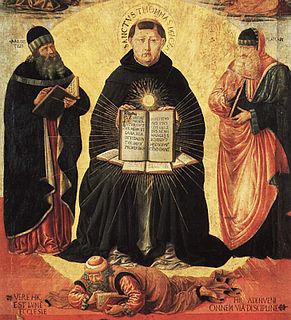 W
WThe Concept of Law is a 1961 book by the legal philosopher HLA Hart and his most famous work.The Concept of Law presents Hart's theory of legal positivism—the view that laws are rules made by humans and that there is no inherent or necessary connection between law and morality—within the framework of analytic philosophy. Hart sought to provide a theory of descriptive sociology and analytical jurisprudence. The book addresses a number of traditional jurisprudential topics such as the nature of law, whether laws are rules, and the relation between law and morality. Hart answers these by placing law into a social context while at the same time leaving the capability for rigorous analysis of legal terms, which in effect "awakened English jurisprudence from its comfortable slumbers".
 W
WThe Critical Legal Studies Movement is a book by the philosopher and politician Roberto Mangabeira Unger. First published in 1983 as an article in the Harvard Law Review, published in book form in 1986, and reissued with a new introduction in 2015, The Critical Legal Studies Movement is a principal document of the American critical legal studies movement that supplied the book with its title. In the book, Unger argues that law and legal thought offers unrealized possibilities for the self-construction of a more democratic society, and that many lawyers and legal theorists have uncritically surrendered to constraints that undermine their ability to make use of law's transformative potential. Unger explains how the critical legal studies movement has refined and reformulated the major themes of leftist and progressive legal theorists, namely the critique of formalism and objectivism in legal doctrine, and the purely instrumental use of legal practice and doctrine to advance leftist aims, and in doing so, has identified elements of a constructive program for the reconstruction of society.
 W
WLaw's Empire is a 1986 text in legal philosophy by Ronald Dworkin, in which the author continues his criticism of the philosophy of legal positivism as promoted by H.L.A. Hart during the middle to late 20th century. The book notably introduces Dworkin's Judge Hercules as an idealized version of a jurist with extraordinary legal skills who is able to challenge various predominating schools of legal interpretation and legal hermeneutics prominent throughout the 20th century. Judge Hercules is eventually challenged by Judge Hermes, another idealized version of a jurist who is affected by an affinity to respecting historical legal meaning arguments which do not affect Judge Hercules in the same manner. Judge Hermes' theory of legal interpretation is found by Dworkin in the end to be inferior to the approach of Judge Hercules.
 W
WLaw in Modern Society: Toward a Criticism of Social Theory is a 1976 book by philosopher and politician Roberto Mangabeira Unger. In the book, Unger uses the rise and decline of the rule of law as a vehicle to explore certain problems in social theory. According to Unger, problems that were central concerns of classical social theorists like Marx, Durkheim, and Weber—the problems of explanation, order, and modernity—remain unsolved. Unger contends that the failure of classical social theory to solve these dilemmas can be traced to the way in which it asserted its independence from the ancient political philosophers, namely in its denial of a supra-historical human nature and in its insistence upon the contrast of fact and value. Unger argues that a radical reorientation of social theory is needed to solve the problems it faces. "To carry out its own program," Unger writes, "social theory must destroy itself." The rise and decline of the rule of law, and the dilemmas of social theory, converge in the need to be able to compare and criticize different forms of society, in order to be able to more effectively submit the organization of society to the human will.
 W
WTaking Rights Seriously is a 1977 book about the philosophy of law by the philosopher Ronald Dworkin. In the book, Dworkin argues against the dominant philosophy of Anglo-American legal positivism as presented by H. L. A. Hart in The Concept of Law (1961) and utilitarianism by proposing that rights of the individual against the state exist outside of the written law and function as "trumps" against the interests or wishes of the majority.
 W
WTreatise on Law is Thomas Aquinas' major work of legal philosophy. It forms questions 90–108 of the Prima Secundæ of the Summa Theologiæ, Aquinas' masterwork of Scholastic philosophical theology. Along with Aristotelianism, it forms the basis for the legal theory of Catholic canon law.
 W
WWhat Should Legal Analysis Become? is a book by philosopher and politician Roberto Mangabeira Unger. First published in 1996, the book germinated from lectures Unger gave at Yale Law School, Columbia Law School, and the London School of Economics. In the book, Unger argues that in order to transform society to be more radically democratic, it is necessary to penetrate the specialized professions so that we can talk about, and imagine, institutions effectively. Unger focuses on the legal profession in this book, setting forth a vision of law as "institutional imagination." He presents a program for changing the nature of the legal profession so that less power is vested in legal professionals and institutions, and legal analysis is reoriented to be more egalitarian and advance more effectively the democratic project.